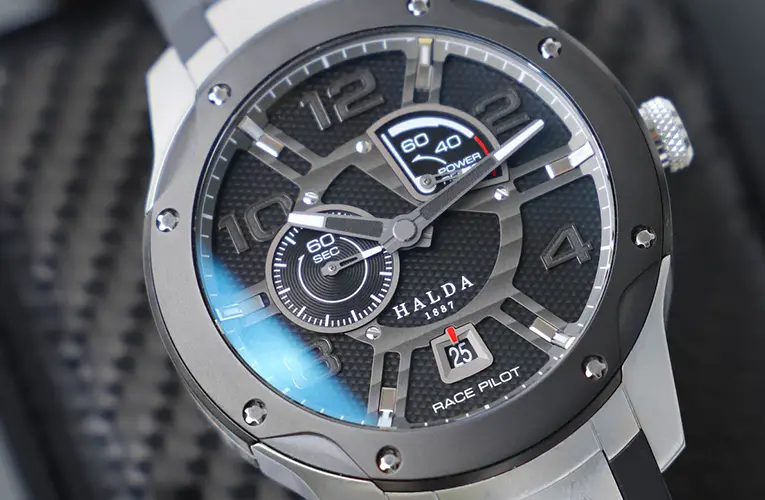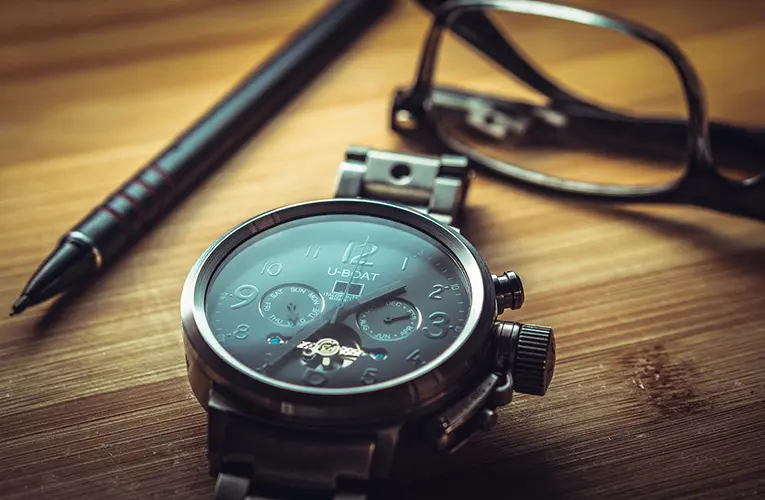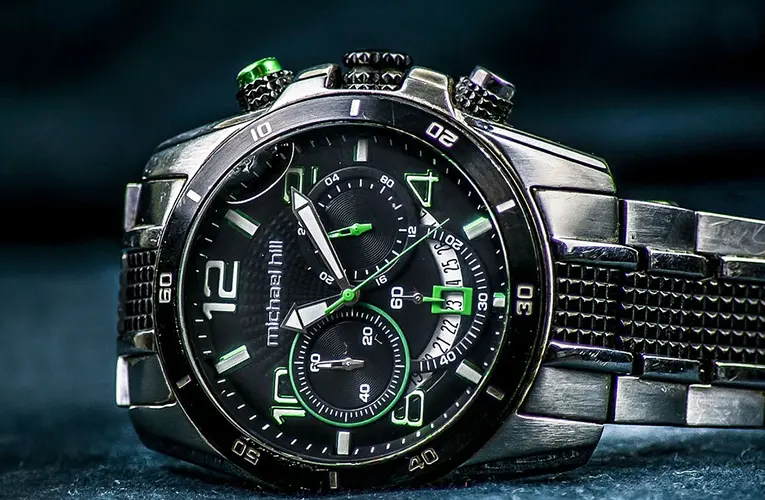“Time Management Essentials: The Role of Watches in University Life”
Introduction
Time management is a fundamental skill essential for academic success and personal development in university life. The use of watches, as both practical tools and cultural artifacts, plays a significant role in shaping how students, faculty, and staff perceive, organize, and prioritize their time. This paper explores the multifaceted role of watches in university life, examining their historical evolution, functional aspects, symbolic meanings, technological advancements, and psychological influences on time perception and productivity.
Historical Evolution of Watches
The history of watches dates back centuries, evolving from early mechanical timepieces to sophisticated digital and smartwatch technologies prevalent today. The invention of mechanical clocks in the Middle Ages revolutionized timekeeping, enabling precise measurement of hours, minutes, and seconds essential for coordinating daily activities, scientific pursuits, and industrial advancements. Watches transitioned from pocket-sized accessories worn by affluent elites to wristwatches embraced by military personnel, professionals, and eventually, students navigating busy university schedules.
Functional Aspects of Watches in University Life
Watches serve as indispensable tools for time management, offering students, faculty, and staff reliable means to track schedules, deadlines, class times, meetings, and extracurricular activities. Analog watches with mechanical movements or digital displays provide accurate timekeeping functionalities essential for punctuality, time-sensitive tasks, and effective time allocation. Chronograph features, alarms, timers, and calendar functions enhance productivity and organizational efficiency, empowering users to manage their academic and personal responsibilities proactively.
Symbolic Meanings and Cultural Significance
Beyond their practical utility, watches hold symbolic meanings and cultural significance embedded in societal norms, fashion trends, and personal expressions of identity. The choice of watch design, materials, brands, and craftsmanship reflects individual tastes, values, status symbols, and lifestyle preferences within university communities. Watches may convey professionalism, punctuality, and attention to detail in academic and professional settings, influencing perceptions of reliability, discipline, and personal style among peers and instructors.
Technological Advancements in Watch Design
Advancements in watch design and technology have transformed traditional timepieces into innovative wearable devices offering enhanced functionalities and connectivity features. Smartwatches equipped with GPS navigation, health monitoring sensors, wireless communication capabilities, and mobile applications integrate seamlessly into students’ digital lifestyles, providing real-time notifications, activity tracking, and productivity tools. Hybrid watches combine traditional analog aesthetics with digital smart features, catering to diverse preferences for style, functionality, and technological integration in university settings.
Psychological Influences on Time Perception and Productivity
The psychological impact of watches on time perception and productivity is profound, influencing individuals’ sense of urgency, attention management, and task prioritization. The act of checking one’s watch serves as a cognitive cue for time awareness, prompting students to allocate time efficiently, meet deadlines, and maintain focus during academic lectures, study sessions, and examinations. Watches symbolize temporal constraints, prompting users to adhere to schedules, manage procrastination tendencies, and cultivate effective time management habits essential for academic success and personal growth.
Cultural and Societal Trends in Watch Preferences
Cultural and societal trends influence watch preferences among university students, reflecting generational shifts, technological innovations, and lifestyle choices shaping consumer behaviors. Millennials and Generation Z embrace minimalist designs, sustainable materials, and versatile functionalities in watch selections, prioritizing environmental sustainability, ethical sourcing, and corporate social responsibility initiatives promoted by watch brands. Luxury watches convey status symbols, craftsmanship, and heritage value, appealing to discerning collectors and aficionados passionate about horological traditions and cultural narratives within university communities.
Practical Applications and Case Studies
Practical applications of watches in university life encompass diverse scenarios, from academic time management strategies to extracurricular activities, campus events, and professional networking opportunities. Case studies explore how students leverage watches to enhance productivity, maintain organizational discipline, and balance academic commitments with personal interests and social engagements. Time management workshops, productivity seminars, and peer mentoring programs incorporate watches as educational tools to foster self-discipline, goal setting, and effective time allocation strategies among university stakeholders.
Future Trends and Innovations in Watch Technology
Looking ahead, the future of watches in university life is shaped by ongoing innovations in wearable technology, artificial intelligence (AI), and Internet of Things (IoT) integration, enhancing functionalities, user experiences, and connectivity across digital platforms. Key trends influencing watch technology include:
1. **Health and Wellness Features:** Expanding capabilities for biometric monitoring, sleep tracking, stress management, and fitness coaching to promote student well-being and holistic lifestyle management.
2. **Personalization and Customization:** Offering customizable watch faces, interchangeable bands, and modular components to accommodate individual preferences, fashion trends, and personal branding within diverse university demographics.
3. **Environmental Sustainability:** Embracing sustainable materials, eco-friendly manufacturing processes, and energy-efficient technologies to minimize ecological footprints and support global sustainability initiatives advocated by university communities.
4. **Education and Research Partnerships:** Collaborating with universities on interdisciplinary research projects, academic studies, and experiential learning initiatives exploring the intersection of wearable technology, human-computer interaction, and behavioral psychology in educational settings.
Conclusion
In conclusion, watches play a multifaceted role in university life as indispensable tools for time management, symbols of personal style and cultural identity, and catalysts for productivity and organizational discipline among students, faculty, and staff. By understanding the historical evolution, functional aspects, symbolic meanings, technological advancements, and psychological influences of watches, universities can promote effective time management strategies, foster a culture of punctuality and accountability, and empower individuals to achieve academic excellence and personal success in today’s dynamic educational environments.
References
[Include references as per the academic style guide you are following]
—









